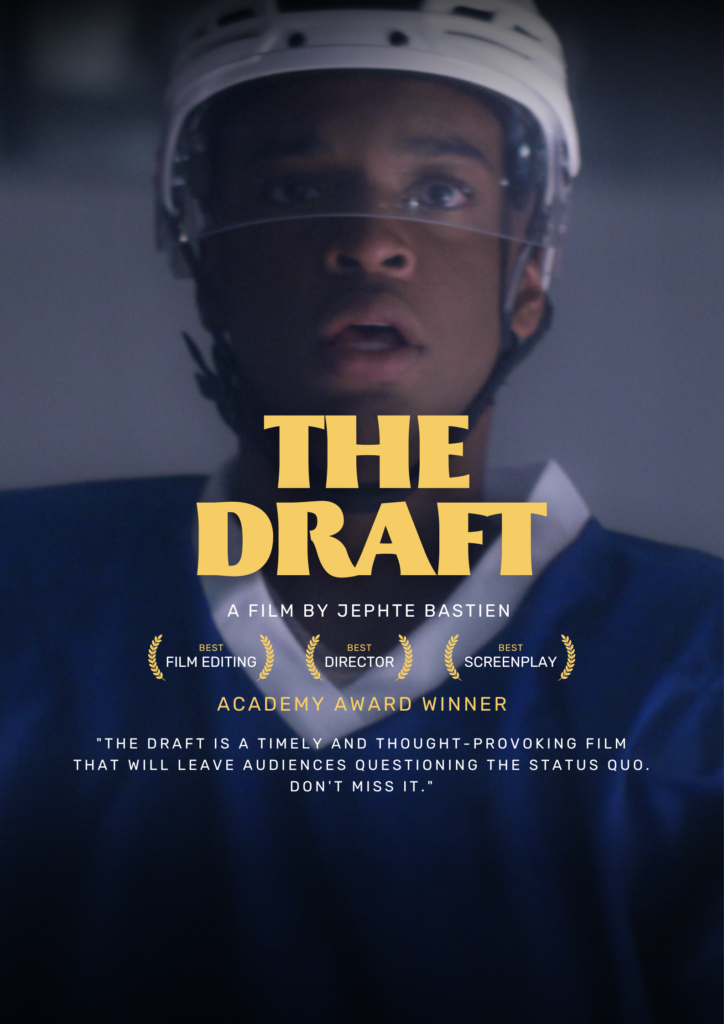TVM: Tell us a bit about yourself and how you got started in the music industry.
Well how I got started I mean my father was a b-bop, r&b singer back in the 50s to 60s and so I grew up knowing my father for always being on the road. When I was 6, he retired from show business. My great-grandfather on my mom’s side used to build pianos for Willis Piano’s in St-Therese, my grandfather played violin and piano, my grandmother on my mother’s side also played piano so, like, everybody was pretty musically inclined. By the time I was maybe 14, I think that’s when I bought my first guitar and that’s when I started taking lessons. I started playing shows when I was 14, maybe 15 years old. That was probably my first show at a high school, and I literally still have the contract. Probably got paid like 175$ to do the whole gig, half of it probably went into renting all the gear, but you know it was my first experience of playing in front of people. So I never really did anything else in my life besides music. I even moved to New York at one point when I was in my 20s, and worked in music retail, record retail, while I was there, as well as co-writing with somebody that was down there. I eventually ended up coming back to Montreal, continued to play live, at clubs, bars. So I met Karl Wolf and started playing with him, he was starting his solo career, and we were doing “Africa” and all that. I was there for the ride.
TVM: What motivated you to open Base Bin Studio?
I had gotten a job at Steve’s music store, I worked there for probably like 6 years, and I was part management at the end, and that was my second home. It took a lot of my energy and self-esteem just working with music instrument retail, it just wasn’t satisfying. So I just went in one day, and I punched my card on a Saturday and walked back home and that was it. I started to think of what else I wanted to do and I thought of opening up a fully equipped
ehearsal studio. With all the contacts I had over the years working at Steve’s, I was sure that I would have a clientele pretty fast. Within 6 months I had written my business plan, presented my business plan, and it wasn’t a year later that I was starting to build the studios, which was my first location on 55 Pine Avenue, east, corner of St-Laurent. I ended up moving to this building, been here about 15 years but I’ve had the studios just over 17 years now and the rehearsal studios have brought me the opportunity to continue to get back to my creative side which I love.
TVM: Talking about the creative side of music, can you give us some tips on how to record vocalists?
A lot of people ask me for tips on how to record vocalists, and um I think the most important thing that’s always lacking is the communication and the people skills that you have to have before the even go into the booth. If somebody is nervous, they are going to start tightening up. If you tighten up, your vocal cords tighten up; everything just like sounds like it’s in a box. When someone is totally relaxed and totally open and it’s sort of like when someone does a complete free open laugh- its loud and you hear it. I’ve had artists at times come in, where let’s say for example we were tracking a vocalist and a backup vocalist would come in and we would ask, how are you doing today? And the vocalist would answer “Great” but we would say “this is a really sad song”, we don’t need you to be great. We need you to be in that zone you know. I’m saying they have to be comfortable enough to be open with you, whether it’s a sad song or a happy song. They have to go to that place that’s extremely personal, that they usually wouldn’t let anyone else in. I have to make them feel comfortable enough to share that with me, and to share that emotion. I’ve had vocalists sing a line and be so touched by the line they are singing that they literally break down and drop to their knees in the studio. That’s when I know I’ve accomplished my job, bringing them to that level, because they never thought they would be able to bring themselves to that point of emotion and being able to define it in song.
TVM: So that’s definitely part of the creative process. How do you help vocalists find their creative voice when they walk into the studio?
Well everybody is different. There are some singers that have more experience than others. Those are the singers that sometimes you almost have to hold back from giving too much. Whereas some singers have so many chops, their technique is so advanced that they forget about the melody. Those are the sort of singers that you have to hold back and then when u get something from them it’s like spectacular, it’s unbelievable. Coral Egan was a singer I worked with that was exactly like that. If you let her go, the technique would overrule the melody. I often tell people also that it’s important to not sing in the key of the song-singing in the key of a progression is a lot different than singing a melody to a progression. You have to be able to separate the melody from the chord progression. So that means not always following the tonics, which are in that chord progression. That’s kind of the easy way out and that means that if somebody is strumming a chords progression, every time the chord strums down you are singing on that down beat. That’s kind of something you want to get away from. More experienced singers don’t have a problem with that, but less experienced singers I have to sort of give them a certain task, and sort of concentrate on that certain task. So if they’re singing, the most important thing I’m going to do, especially for a less experienced singer in the booth, is let them sing the one verse for example, maybe 10 times. Let them find their voice. The more comfortable they get with me, the more I might throw a couple things at a time.
TVM: What should vocalists expect when walking into your recording studio? How should they be prepared beforehand?
Well, if the song has been written or produced by me and arranged, they usually have tracks that they can actually rehearse with. I usually give them what’s called a “ghost lead” for them to practice-it almost like practicing a cover song. So they work with their vocal coaches before coming into the studio so they are a little bit more prepared when they walk into the room here. Now that being said, I prefer them to come in knowing all the words, not looking at a lyric sheet, because If you can’t remember the words then you can’t remember the emotion that you’re trying to deliver. So being prepared beforehand, whether you’re practicing on your own or whether you’re practicing with a vocal coach, is always a plus.
TVM: You were saying before that you have worked with Karl Wolf-Who else have you worked with, have you collaborated with?
Well lately, well the latest album for Coral Egan that’s coming out, uh that’s out right now, it’s called The Year You Drove Me Crazy, I co-wrote that record, and I was just hired recently to actually re-record, a French musical called “Don Juan”, so Corey Hart actually had the pleasure of re-writing all the lyrics to that musical in English.
TVM: Based on all of these experiences, tell us what makes a vocalist easy to work with, vs. difficult to work with
It’s very simple; some vocalists are just easier to work with because there’s a trust factor I guess? The vocalists that I would consider “easy” are vocalists that are open to trying things, without fighting you on every suggestion. And then there are vocalists that are so used to doing their own thing and self-producing themselves that those are the vocalists that, after a while, you just can’t fight them. So, even if it’s a vocalist that’s pitchy, and out of tune, I have more fun with somebody like that, at times, that’s willing to try things, as opposed to somebody that has all the technique in the world and just fights you on every, you know, vocal melody.
TVM: What do you personally expect vocalists to take away from their recording experience?
I want them to leave here feeling like they had fun. Yeah. I want them to feel like it was an experience and they learned something. I want to be able to give and to take, and I want to be able to learn things from the singers in the booth, and they can show me something that’s either like a vocal technique they have, the way they sing, the way they approach the mic, and that makes my day. So it’s a give and take, but I think overall I just think that I want them to say that “Albert was super open” and “I learnt a lot” and above all, “I had so much fun”….”we laughed a lot”.
TVM: Finally, do you have tips to share on the recording process? Maybe how to act, how to ease any nerves?
Uh, you know what- the most important thing to do before you come into the studio is to make sure that you warm up. So if you have a vocal coach of some sort, um, try to learn some vocal techniques to warm up your vocal cords, so when you come in you’re not feeling like your range is limited just because you haven’t actually used those vocal cord muscles for the whole morning. If you don’t have a vocal coach, YouTube is your best friend. There’s like, hundreds and hundreds of vocal coaches giving free advice on how to do vocal exercises or just to warm up before either going to a recording studio or performing live. Come in with a good attitude, and you know, come in with a positive attitude. I mean I think that will just make for the session to be a lot of fun. So they need to come in here and feel like “wow, this is what I want to do for a living because I love doing this”, and it’s got to be fun


 Business3 years ago
Business3 years ago
 Business2 years ago
Business2 years ago
 Business2 years ago
Business2 years ago
 Business3 years ago
Business3 years ago
 Business3 years ago
Business3 years ago
 Business3 years ago
Business3 years ago
 Business3 years ago
Business3 years ago
 Business3 years ago
Business3 years ago








































